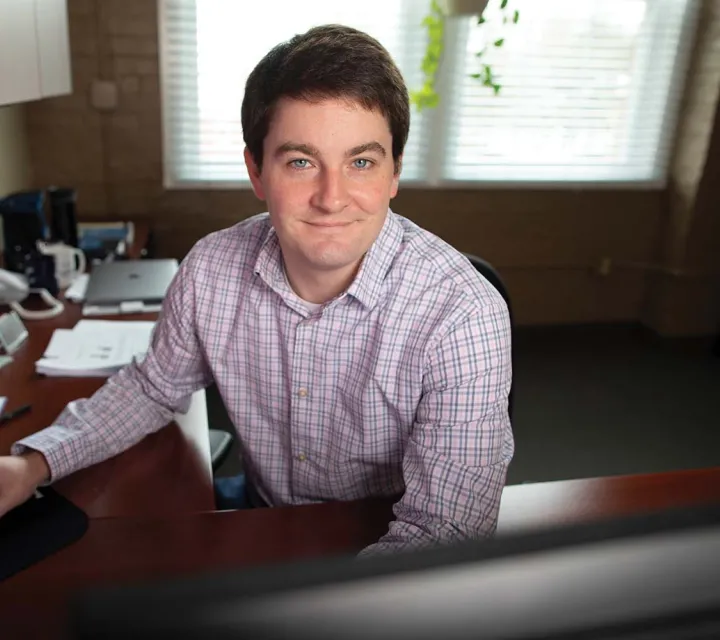Imagine walking through your local farmer’s market and seeing a stall with grape tomatoes, carrots, romaine lettuce and russet potatoes grouped together. Now, if the potatoes were removed, does your mind naturally categorize the stall as providing “salad” ingredients?
What if the grape tomatoes were removed? Chances are that the stall without the potatoes relates more to your concept of “salad” than the stall without the grape tomatoes. Relationally, this example reveals that grape tomatoes may carry more information about the stall than the potatoes.
Assistant Professor of Psychology Dr. Charles Doan, along with a team of researchers from other universities, conducted a large-scale experimental investigation into how people process relational information and judge the informativeness of objects belonging to categories that they encounter in various environments. The results were published in the leading cognitive psychology journal, Memory & Cognition.
The research began while Doan was a doctoral student at Ohio University, and involved his faculty advisor, Dr. Ronaldo Vigo, and two other doctoral students: Dr. Derek Zeigler and Dr. Fnu Basawaraj.
“We are all members of the Consortium for the Advancement of Cognitive Science research lab, which was started by Dr. Vigo and has the goal of collaborating with researchers of all Cognitive Science disciplines to further our understanding of fundamental cognitive capacities in human and non-human animals,” Doan says. “To date, the collaborations of the lab have involved research investigations related to Psychology, Neuroscience, Computer Science, Electrical Engineering and Mathematics.”
Doan has incorporated some of this research into his Cognitive Psychology, Sensation and Perception, and Experimental Psychology courses, and is currently developing laboratory exercises based on the research that helps strengthen the experiential learning students receive at the College.
He has ongoing research that extends the published research. Levi Tucker ’22 and Alexandria Williams ’21, MAP’22 are working as his research assistants.
Williams is helping Doan with his latest research by running participants through the experiment and creating one of the scripts being used for the study. “In addition, I will be contributing to the presentation that we will be giving in April,” she says. “I may also assist Dr. Doan in creating graphs and writing sections of the paper he submits as well.”
Doan, who joined the faculty in 2018, says his Marietta team will be presenting some of the results of the extended research at the upcoming Midwestern Psychological Association meeting in April.
